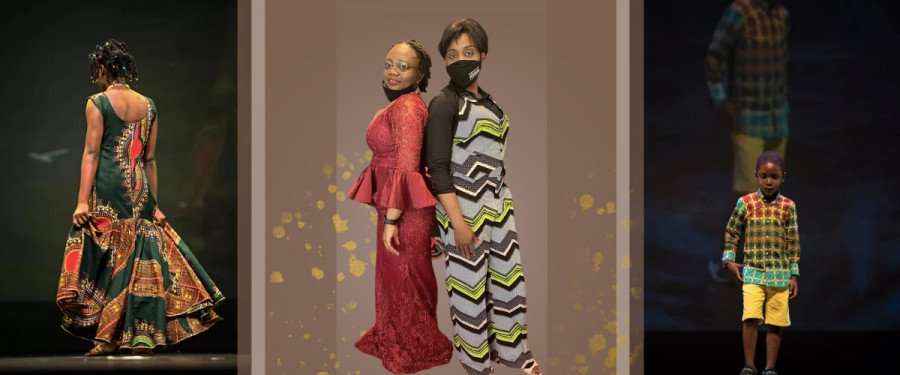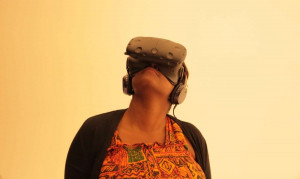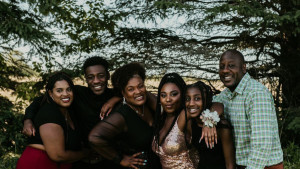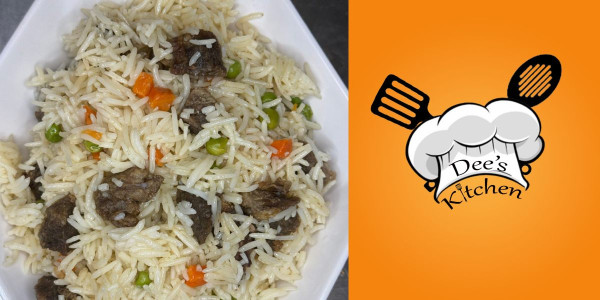Before moving to Canada, Christine worked for an educational non-profit in Nigeria, organizing fundraisers for school uniforms and hot lunches for under-served children in public schools. A philanthropic focus soon became the root of Christine’s business in Canada.
With a spirit of positivity, Christine moved to Saint John, New Brunswick as an international student in 2014. She experienced many culture shocks, which led her to shake up the small, primarily white community she lived in to introduce her African heritage through fashion. As a result, Christine launched Kaima Designs in 2017. Her mission was to raise awareness and give back to young girls and women in Africa through her business. “I wanted to own a business to support young girls’ education and empower women in Africa. This mission was inspired by my mother’s personal experiences. She served as a maid to a distant relative, and when she went back home after years of torture, she was married off against her will as a second wife. While her mates were in school, she was nursing babies,” she says.
Christine’s friend, Rufina, immigrated to Saint John in 2019 to do her MBA. “It was tough because I left behind my family, friends, a fantastic job and years of life back home to get into an unknown future—starting afresh was not an easy decision. It was overwhelming to find a job, connect with new people, adjust to the constant weather changes, and the list is endless.”
To further ignite the conversation around social impact, Christine and Rufina co-founded United Colours of Fashion (UCOF)—a fashion show to bring diverse fashion styles to the city of Saint John and someday beyond. The inaugural UCOF Fall Fashion Show was hosted at the Imperial Theatre on August 21, 2021, hosting over 250 participants. Notable government officials such as Minister Arlene Dunn, Mayor Donna Reardon and MP Wayne Long were in attendance alongside other business and community leaders.
Rufina and Christine both knew firsthand how difficult being a newcomer in a predominantly white community is and wanted to help ease that process with UCOF. “It was that realization of the challenges people face as newcomers in a new environment, a new country or community, and how often overwhelming it gets. You don't know how to start with all the laws, regulations, barriers, and cultural differences and do not even know where to begin or whether you should wholeheartedly express yourself or not. So, we thought of a safe place for anyone who wants to learn how to sew and gain sewing skills, to be able to express themselves, establish social ties, meet new friends, celebrate their culture and instil a sense of confidence while earning a living.”
By creating a safe space for everyone to be themselves, they’ve also made a place for cultural appreciation versus appropriation. Models during the fashion show are of all races, including white, while donning clothes from various cultures. Christine feels cultural appropriation and appreciation are “sensitive topics that require a certain measure of courage and conviction to address. History has it that the colonial masters brought western religion and education to Africa and in return, enslaved our natural and human resources while carting away our cultural and sacred artifacts to their museums. While most of these were said to have been stolen, the Africans willingly gave up these resources as gifts or traded for other foreign materials.”
In discussing fashion specifically, Christine feels that the identifiability of styles and prints has protected some of the appropriations. “With regards to fashion, I wouldn’t say it has been appropriated for monetary gains or stolen because our traditional outfits and hairstyles are peculiar to us and easily identifiable as ours. Nonetheless, the problem most Blacks or people of African descent have with cultural appropriation is that those who appropriate the culture love the culture but detest the source.
For example, the same hairstyles that Blacks are condemned or ridiculed for are applauded as unique when worn by their white counterparts. This is further escalated when the credit is given to the wrong source, as in the case of Kim Kardashian’s 'Bo Derek' braids. Luckily celebrities like Rihanna are changing the narrative with her Met Gala yellow dress. She wanted a Chinese outfit, sought out a Chinese designer and gave full credit to the source. That’s a perfect example of cultural appreciation at best.”
Historically, Christine tells us that African wax prints “or Ankara as we call them,” were introduced to West Africa by Dutch merchants during the 19th century, who drew inspiration from native Indonesian designs. In East Africa, the prints are referred to as Kitenge and today are produced in Africa and China.
Rufina believes part of the UCOF mandate is to share stories through fashion and broaden people’s “worldview,” hoping this education will help cease appropriation. “United Colours of fashion is a fabric of different colours of diversity to create awareness of the interplay between cultural appropriation and appreciation. To build a more culturally enlightened and harmonious society where everyone is comfortable genuinely embracing other cultures and participating actively in multicultural events without fear of cultural appropriation.”
Rufina shares that "our fashion show had the key ingredients of a fantastic event, which has sparked enough interest for a second production this August at the Imperial Theatre."
Despite the many challenges of managing a fashion business and launching an event production, Christine knew that there was a market for Kaima Designs tapping into the growth of multiculturalism and inclusion. She also claims that her joint production United Colours of Fashion has helped the community in new ways. "At the last UCOF Fall Fashion show, we donated two sewing machines to newcomer women who had no prior experience in sewing, creating work opportunities for them. We have grown from two women to seven women, including three from Africa, three from China, and two from Canada. Amongst these women, two of them are persons with disabilities.”
For Rufina, she says the sky's the limit for UCOF and that together, they plan on expanding the fashion show beyond New Brunswick’s borders.

 By
By 








